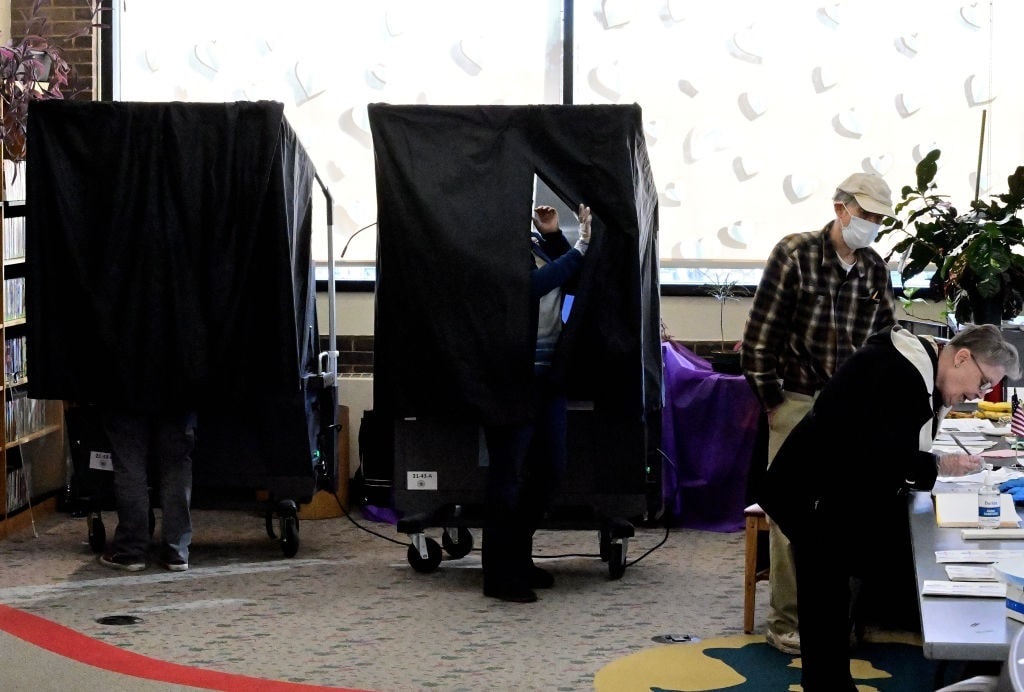Super Tuesday’s right around the corner, and among the 15 states participating in what one might call the primary season’s version of March Madness is a swing state with brand new election laws. For North Carolina voters, things are different this year. But unlike in many of the other swing states where the changes slide election security down the scale to “loose,” the Tar Heel State is tightening the reins.
Papers, Please
Chief among the changes is a new voter ID requirement. The law requiring photo identification in North Carolina was actually passed five years ago; it was just tied up in lawsuits and wasn’t able to take effect until this year. More left-leaning activists, like the NAACP, argued that voter ID could be a barrier to voting, “especially for marginalized communities.”

This ignores the fact that either a driver’s license or state-issue non-driver ID are required for pretty much anything age-limited, from driving or getting a job to buying tobacco, alcohol, firearms, or entering certain “adults only” locations. Common sense suggests that most adults – the legal citizens, at least – have some form of photo ID, whether that be a driver’s license, a military, school, or government employee ID. Many folks have state IDs that don’t grant any other privileges, like driving – which a person can get for free from a county election office.
This idea goes beyond mere theory; it has been tested. Close to 99,000 votes cast by mail or in person for primary or general elections to fill positions on school boards and municipal governments on September 12 and October 10 were counted. A mere 40 were discarded for failure to comply with the ID requirements – which allow nearly a dozen forms of identification. Failing that, state law allows non-compliant voters to fill out an ID exception form and have their ballot counted “unless the county board has grounds to believe the affidavit is false.”
In addition to this, a law passed last year requires a photocopy of a qualifying ID be sent with any mail-in ballot. Signatures on absentee ballots might also be checked against what the state has on file from the voters’ registrations. A pilot program in the counties of Durham, Halifax, Bertie, Wilkes, Montgomery, Rowan, Jones, Pamlico, Henderson, and Cherokee will test signature recognition technology. During this test, no votes will be thrown out for failing the verification test. If it’s successful, however, it may be implemented statewide in future elections.
Watching the Watchers
The new law also specifies what partisan poll watchers can do. Each party can have as many as three observers present at a voting place at any given time. They’re allowed to listen to conversations between voters and poll workers, take notes, and move around the voting place freely. They are not, however, allowed to tell voters who to pick, look at ballots, or stop people from entering the location. Intimidation of voters and election officials is both a state and federal crime.

(Photo by Mark Makela/Getty Images)
Any nonvoting person who enters a polling place must now sign a log and give their name, address, and time of arrival. The minor children brought with voters are, of course, exempt.
Hurry Up and Vote
The 2023 “act to make various changes regarding election law” also shortens the window for absentee voting. Mail-in ballots must now arrive at the polling place by 7:30 pm on Election Day rather than simply be postmarked by that date, as was previously the case.
The results of early in-person voting will be delayed, as well. While election officials were previously allowed to tabulate early voting results before closing the polls, allowing them to report almost immediately at the 7:30 end of the day, now they must wait until that time to “close the polls” and begin counting. Since Tuesday will be the first election under this rule, it’s unclear just how long this will take. Early voting began Thursday, February 15.
North Carolina Conflict
The law was far from universally welcomed by the state government, and multiple parts are being challenged. At present, a change to same-day voter registration is blocked by judicial action. Judge Thomas Schroeder blocked the change, which would require voters to be registered no later than 25 days before an election.
Republicans in the legislature also passed a bill last year that would completely restructure state and local election boards. Rather than having a majority of members from the governor’s party, with the governor able to appoint members, the boards would be split evenly between the parties and would be populated by people chosen by the legislature. A panel of judges blocked this from taking effect in November.
Democrat Governor Roy Cooper tried to stop all the changes by vetoing the election security bill last year. “This legislation has nothing to do with election security and everything to do with Republicans keeping and gaining power,” he declared in his veto document. “In working to erect new barriers for younger and non-white voters, many of whom use early voting and absentee ballots, this bill also hurts older adults, rural voters and people with disabilities.”
“North Carolina has conducted fair and secure elections but this bill will block voters and their ballots unnecessarily,” the governor concluded. “Therefore, I veto this bill.”
All his fury was for naught. The House voted 72-44 and the Senate followed 30-19, overriding the veto and establishing the bill as law.

